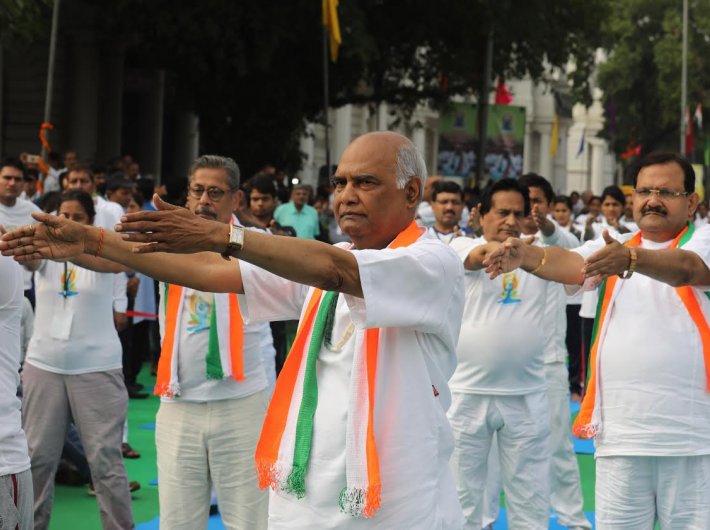NDA’s presidential candidate predicted in 2005 that caste-based discrimination will exist for at least the next 50-100 years in India
Ram Nath Kovind, the presidential candidate of the BJP-led National Democratic Alliance (NDA), said in 2005 that his party is determined to help dalits and shed the image that it is only an "upper caste party".
A
US embassy document – ‘Socioeconomic future of Indian dalits remains bleak’ quoted Kovind as saying that only a nationalist party like the BJP will succeed in fighting discrimination against dalits, as India cannot become a world power until dalits and low-caste persons are brought up to the level of the rest of society. The document was part of the many that became public under the WikiLeaks campaign.
He told the embassy interlocutors that the true basis of discrimination is economic in nature rather than caste-based, as the "haves discriminate against the have-nots" and use the caste system to perpetuate differences between economic groups.
“Comparing the caste system to the trade guilds in feudal Europe (in that certain groups performed specific jobs), he added that under the caste system persons acquire their trade at birth, while the guilds allowed job mobility. Caste factors are now used to protect jobs and livelihoods more than anything else,” argued Kovind, who then headed the BJP’s dalit cell.
The confidential document dated June 22, 2005 said: “Embassy interlocutors report that after one year of UPA rule, limited government efforts to improve dalit (formerly called "untouchables") socioeconomic status have shown little success, ensuring that they continue to face severe economic and social discrimination. Government reservation laws do not extend to the private sector, the largest and fastest growing segment of the economy. Most experts believe the key to ending discrimination is a comprehensive education campaign starting at the primary level to teach acceptance of dalits, a topic completely absent from India's public school system.”
Kovind, who was then a Rajya Sabha member, said that “open discrimination against dalits has decreased dramatically over the last decade, while the number of persons who genuinely care about helping dalits has increased. He maintained that while discrimination persists in the housing sector, employment decisions are usually free from bias.”
He also asserted that the current legislation has to a large degree been successful in protecting dalit rights, “but that India still has work to do to end discrimination, citing increasing dalit access to primary education as a place to start”.
“Kovind predicted that caste-based discrimination will exist for at least the next 50-100 years in India. He suggested that since the Hindu religion condones caste, it will take longer for the GOI to end caste discrimination in India than it will take to eradicate racial discrimination in the US.
“Kovind stated that the BJP favors reservations in the private sector and will pressure the UPA government to institute them.”
